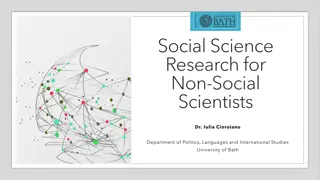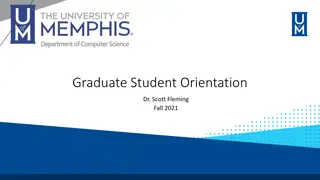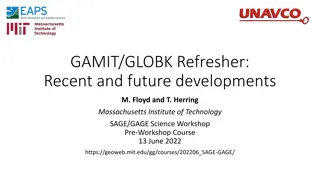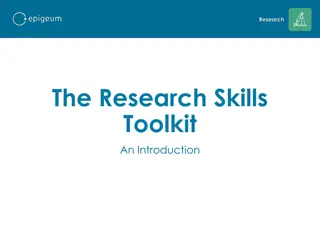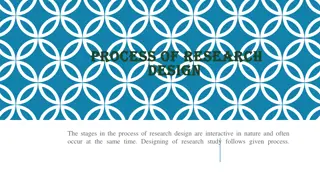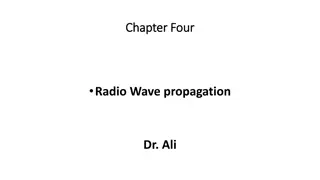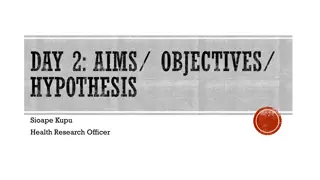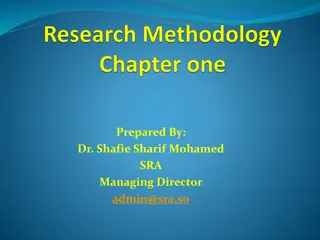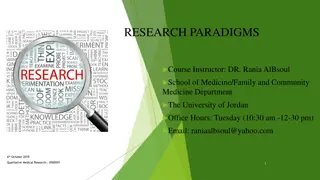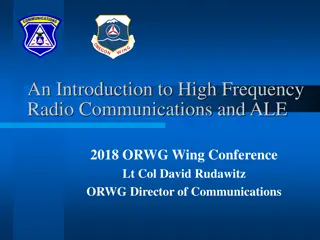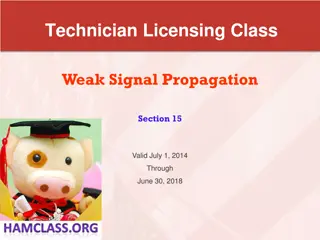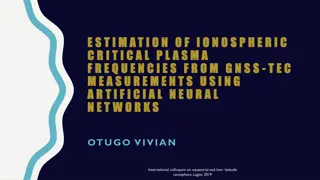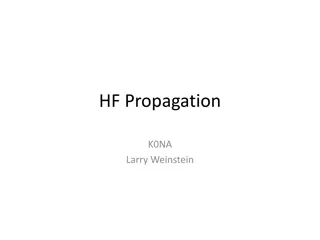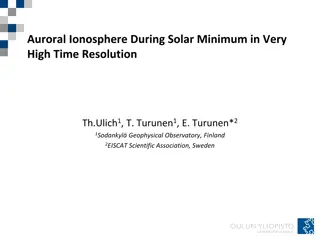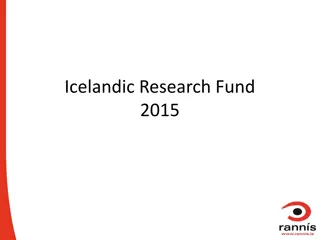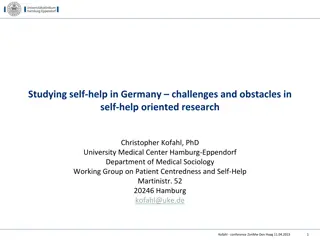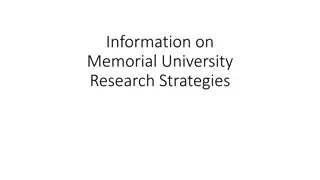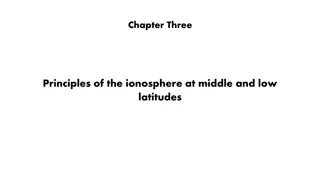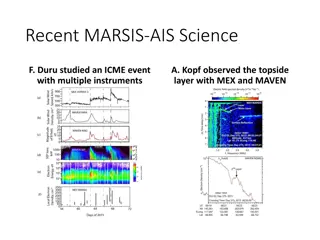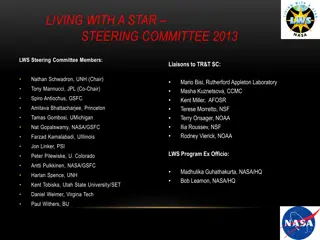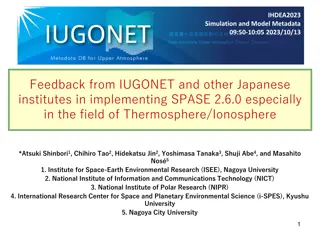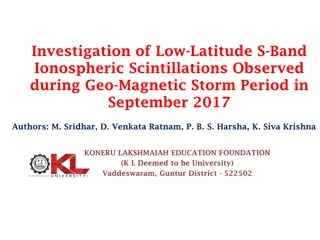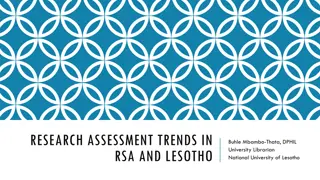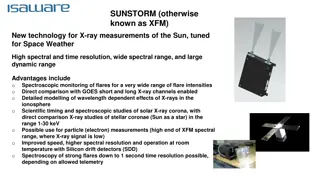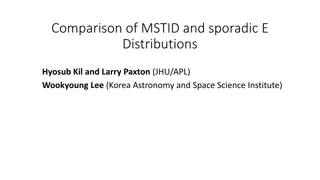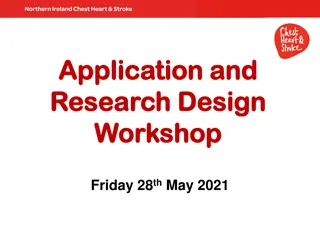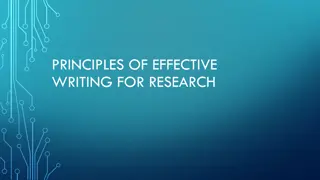Addressing Contemporary Challenges in Research Security Program Development
The Workshop to Inform Development of the Research on Research Security Program (RRSP) focuses on safeguarding the research enterprise amidst evolving global threats. Led by Dr. Rebecca Keiser and Dr. Shawna Cox, the program aims to balance security measures while maintaining an open and collaborati
3 views • 16 slides
Safeguarding Canada's Research: Policy on Sensitive Technology Research and Affiliations of Concern (STRAC)
Canada's new Policy on Sensitive Technology Research and Affiliations of Concern (STRAC) aims to protect the country's research ecosystem from foreign entities posing security risks. The policy restricts funding for projects involving sensitive technology research if affiliated with military or stat
1 views • 10 slides
Understanding the Process and Types of Research Design
The process of research design involves interactive stages that occur simultaneously, leading to the designing of a research study. This includes steps in research design, classification of research design types, such as exploratory, descriptive, and experimental/causal research design. Each type se
12 views • 8 slides
BTH/OTH Radar and Maritime Surveillance Radar Overview
The article discusses BTH/OTH radar systems and maritime surveillance radars, exploring their functionalities, benefits, drawbacks, and real-world examples. It delves into the working principles of OTH radar, showcasing how it operates through the ionosphere. Additionally, it covers the concept of m
5 views • 12 slides
Importance of Formulating Clear Research Problems
Addressing a research problem is crucial in research endeavors as it guides the process, helps in setting objectives, and determines the direction of the study. Formulating a well-defined research problem aids in understanding the research procedure, clarifying objectives, designing the research pro
14 views • 7 slides
Action Research Cycle Step 1: Plan and Implementing Research Questions
Action research involves identifying a problem, forming research questions, and creating a research plan. It aims to understand situations, evaluate, problem-solve, and generate new ideas. Defining a research topic is crucial, focusing on the rationale and relevance. Selecting manageable topics dire
8 views • 17 slides
UCC Research Support and Strategies Overview
UCC's Research Support, Policy & Strategy function, led by David O'Connell, PhD, provides comprehensive support for research activities at the university. The office manages research funding, monitors performance, and facilitates engagement with external stakeholders. UCC's involvement in Horizon Eu
3 views • 17 slides
Understanding Social Science Research for Non-Social Scientists at University of Bath
This resource delves into social science research fundamentals, encompassing types of inquiry, empirical research categories, primary and secondary research distinctions, and the importance of selecting a suitable research topic. It offers guidance on initiating research based on empirical observati
1 views • 10 slides
Graduate Student Orientation Fall 2021 - CS Department Overview
The Graduate Student Orientation for Fall 2021 at the CS Department led by Dr. Scott Fleming covers essential topics such as department mission, degree programs, faculty research areas, research impact indicators, and research opportunities within the department. Learn about the CS Department's high
0 views • 41 slides
Recent Developments in GAMIT/GLOBK for GNSS Processing
Significant updates and future developments in GAMIT/GLOBK for GNSS processing include processing of multiple constellations independently, transition to secure HTTP for code distribution, addition of azimuth field for station alignment, and regular updates schedule. Higher-order ionosphere and rapi
0 views • 10 slides
Enhancing Research Skills with Epigeum's Research Skills Toolkit
Epigeum, a leading provider of online courseware, offers the Research Skills Toolkit, comprising five core programs designed to equip postgraduate researchers with key skills and knowledge. Developed from the Research Skills Master Programme, the Toolkit integrates interactive learning design, user-
1 views • 9 slides
Effective Proposal Writing for Health Research
Learn about the fundamentals of research proposals for health-related studies, including defining research, understanding the purposes of health research, and exploring motivation for undertaking research. Discover the difference between basic and applied research, examine types of research, and del
1 views • 70 slides
Overview of Research Problem Identification and Formulation
Understanding the importance of defining a research problem, this content delves into the selection and formulation of research problems, the definition of a research problem, reasons for defining it, methods for identifying research problems, sources of research problems, and considerations in sele
1 views • 11 slides
Understanding the Process and Types of Research Design
The process of research design involves interactive stages occurring simultaneously, leading to the creation of a structured study. There are three main types of research design: exploratory, descriptive, and experimental (or causal). Each type has its own objectives and methods. Exploratory researc
0 views • 7 slides
Understanding Radio Wave Propagation in the Ionosphere
Radio wave propagation in the ionosphere is influenced by factors such as the radio refractive index and absorption of radio wave energy. This chapter delves into the interaction of radio waves with the ionosphere, discussing concepts like the electromagnetic spectrum nomenclature and the frequency
0 views • 15 slides
Understanding Research Aims, Objectives, and Hypothesis in Health Research
This content delves into the importance of defining research aims, objectives, and hypotheses in health research. It explains how research aims clarify the study's goals, objectives outline specific tasks to achieve those goals, and hypotheses help in making predictions. It also discusses the proces
1 views • 17 slides
Understanding the Essence of Research: A Comprehensive Overview
Research is a systematic pursuit of new knowledge, aiming to unveil hidden truths through data collection and analysis. This course outline delves into the fundamentals of research, covering topics such as types of research studies, importance of research, and distinctions between pure and applied r
3 views • 32 slides
Epic Tools for Clinical Research by Shara Power, RN, BSN, OCN
Explore Epic tools for clinical research developed by Shara Power, a skilled application developer specializing in EPIC Beacon Oncology at UIHC Healthcare Information Systems. Learn about managing research study records, investigational study medication orders, and the process for creating and using
0 views • 26 slides
Understanding Research Paradigms in Qualitative Medical Research
Delve into the world of research paradigms in qualitative medical research with a focus on the key differences between objective and subjective research, the meaning of research paradigms, components of research paradigms, types of research paradigms, and how paradigms guide the selection of researc
0 views • 42 slides
Understanding High Frequency Radio Communications and ALE
High Frequency (HF) radio communications, specifically using Single Side Band (SSB) modulation, are essential for effective long-distance communication. The components of an HF radio system include a transceiver, antenna, and power source. By utilizing the ionosphere, HF/SSB modulation enables cost-
5 views • 47 slides
Guidelines for Selecting Research Project Topics in Environmental Health
Research is crucial for addressing environmental health issues. Choosing a good research topic is the first step towards effective research. This paper discusses the meaning, characteristics, types of research, and the research process to help in selecting appropriate research topics. Understanding
0 views • 15 slides
Comprehensive Research Training Programme in Social Sciences
Delve into the Research Training Programme offered by the Graduate School of Social Sciences, led by Professor Mark Tranmer. Explore the importance of research methods training, course offerings under the Research Training Programme (RTP), the Certificate in Social Science Research Methods (CSSRM),
6 views • 11 slides
Understanding Weak Signal Propagation in Radio Waves
This informative content delves into weak signal propagation and its various aspects related to electromagnetic waves, particularly in the context of radio communication. It covers topics such as radio waves, radio horizon, knife-edge diffraction, tropospheric scatter mode, auroral reflection, and m
1 views • 37 slides
Estimation of Ionospheric Critical Plasma Frequencies Using GNSS Measurements
This research focuses on estimating the critical plasma frequency of the ionosphere, specifically the F2 layer (f0F2), using GNSS measurements. The study reviews past work on ionospheric modeling, discusses neural network training inputs, and presents a single station neural network model (NNT2F2).
0 views • 26 slides
Understanding HF Propagation for Amateur Radio Communication
Dive into the world of HF propagation and how signals travel from one point to another in amateur radio communication. Explore topics such as ionosphere basics, critical frequency, practical examples, and the importance of the F2 layer. Gain insights into launching waves, propagation prediction meth
0 views • 34 slides
Understanding the Layers of the Ionosphere
Explore the layers of the ionosphere including the D, E, Es, and F layers and how they impact radio wave propagation. Discover how solar activity affects ionization levels and skip distances, offering insights into long-distance communication potential. Learn about the influence of solar radiation o
0 views • 19 slides
Cutting-edge Technology at Sodankyl Geophysical Observatory
The Sodankyl Geophysical Observatory in Finland utilizes state-of-the-art technology for ionospheric research, including the Alpha-Wolf sounder, a sophisticated transmitter, and receiver array. The observatory has a rich history of ionosonde operations since 1957, with continuous advancements in dat
2 views • 23 slides
Icelandic Research Fund 2015: Enhancing Scientific Research and Education
The Icelandic Research Fund (IRF) aims to enhance scientific research and education in Iceland by awarding funding to research projects led by individuals, teams, universities, research institutes, and companies. Principal investigators must have completed graduate studies and experience in running
0 views • 22 slides
Challenges in Self-Help Research in Germany
Exploring the landscape of self-help research in Germany reveals various challenges and obstacles faced by researchers in studying self-help initiatives. The research delves into different aspects such as research scope, involvement of various groups, and the entities conducting research in this dom
0 views • 14 slides
Memorial University Research Strategies Overview
Memorial University's research strategies focus on attracting, retaining, and supporting researchers, fostering an environment of research excellence, engaging with community partners, and supporting fundamental and applied research. The university's strategic priorities include synergy in applicati
0 views • 11 slides
Understanding Ionospheric Absorption Laws and Regions
The principles of the ionosphere at middle and low latitudes, Lambert-Beer exponential absorption law, and characteristics of E and F regions are discussed. The absorption of solar radiation, recombination reactions in different regions, and ionization processes are highlighted, providing insights i
0 views • 15 slides
Recent Insights into Mars Ionosphere Studies with MARSIS-AIS
Discover recent research on the Martian ionosphere conducted by scientists using various instruments such as MARSIS, MAVEN, and MarMCET. Explore studies on electron density profiles, ionospheric traces, and the timing issue correction of the AIS sounding cycle. Publications address improvements in a
0 views • 6 slides
Advancing the Living with a Star Program: Science Goals and Community Priorities
The Living with a Star (LWS) program, led by a dedicated steering committee, aims to provide yearly reports, set long-term visions, and address key science topics in solar and space physics. The community priorities include enabling discovery and addressing societal needs, emphasizing the importance
0 views • 11 slides
Japanese Institutes Implementing SPASE 2.6.0 for Thermosphere/Ionosphere Research
Feedback on implementing SPASE 2.6.0 in the field of Thermosphere/Ionosphere from Japanese institutes including IUGONET. The discussion covers the purpose of the IUGONET project, current status of the metadata databases, the GAIA model, and major scientific results achieved. Input and output data of
0 views • 11 slides
Investigation of Low-Latitude S-Band Ionospheric Scintillations during September 2017 Geo-Magnetic Storm
The study focuses on analyzing the impact of geo-magnetic storms on NAVIC satellites, particularly the S-band signal, during September 2017. Researchers from K.L. Deemed to be University observed variations in solar and geomagnetic activity indices, providing insights into the behavior of the ionosp
0 views • 15 slides
Research Assessment Trends in RSA and Lesotho: Issues, Challenges, and Forward Strategies
Research assessment in RSA and Lesotho involves evaluating research quality, measuring inputs, outputs, and impacts using both qualitative and quantitative methodologies. The prevailing practices include assessing research productivity for progression and utilizing various assessment mechanisms to e
0 views • 7 slides
SUNSTORM: Advanced X-ray Technology for Solar Measurements
SUNSTORM, also known as XFM, is a cutting-edge technology designed specifically for measuring X-rays from the Sun, tailored for Space Weather monitoring. It offers high spectral and time resolution, a wide spectral range, and a large dynamic range, making it ideal for various scientific studies rela
0 views • 4 slides
Comparison of MSTID and Sporadic E Distributions in Ionosphere Study
Investigating the role of sporadic E in medium-scale traveling ionospheric disturbances by comparing its distribution with MSTID using CHAMP satellite data. Sporadic E and MSTID occurrences, detection methods, and distribution patterns in different hemispheres are explored, revealing seasonal variat
0 views • 9 slides
Exploring Research Design and Funding Priorities in Northern Ireland
Dive into the world of research at the upcoming Application and Research Design Workshop scheduled for Friday, 28th May 2021. Discover the strategic priorities driving impactful research initiatives, learn about current research projects, funding processes, and collaborations. Explore the rich histo
0 views • 37 slides
Writing Research Papers Effectively: Guidelines and Steps
Effective writing for research involves developing a good research idea, writing a literature review, and understanding the key elements of writing research articles. This process includes coming up with a strong research question, gathering relevant information, creating an outline, writing the dra
0 views • 26 slides







